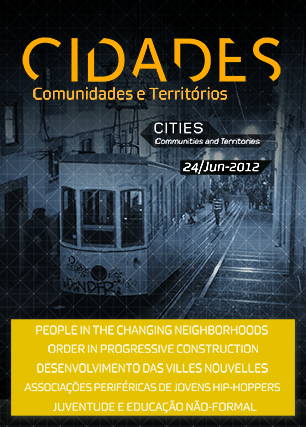Juventude e Educação Não-Formal
Uma Análise das Práticas Educativas do/ no Hip-Hop Soteropolitano
Palabras clave:
Hip-hop, educação não-formal, juventudeResumen
O objetivo do presente estudo é analisar as práticas educativas na cultura hip-hop, ou seja, entender como o hip-hop possibilita a conscientização da identidade e a tomada de decisão individual e coletiva entre jovens que fazem parte do movimento hip-hop da cidade de Salvador, Brasil, bem como identificar as metodologias adotadas no processo de ensino e aprendizagem, e analisar os objetivos da educação não formal praticada por esse grupo. Utilizou-se um método qualitativo de pesquisa etnográfica do tipo proposto por André (2002), caracterizado pelo uso de técnicas comumente associadas à etnografia, como observação participante, entrevistas intensivas e análise documental, permitindo que a pesquisa etnográfica do autor difira de etnografia, na medida em que alguns requisitos metodológicos tecnológicos não são seguidos à risca. Os dados foram coletados por meio de observação e entrevistas a jovens que fazem parte do movimento hip hop de Salvador. A partir deste trabalho, acreditamos que pode-se concluir que a natureza do movimento hip-hop em Salvador, seja por meio de concertos, reuniões de grupo, oficinas ou palestras, seja através de outras atividades apoiadas por esse movimento, baseia-se em práticas não-formais. educação, já que o hip-hop é um fator importante na transformação da realidade de indivíduos pobres, jovens, negros e marginalizados, cuja possibilidade de ativismo social, político e cultural reside nessa reunião de lazer e política.
Descargas
Publicado
Número
Sección
Licencia
CIDADES, Comunidades e Territórios by DINÂMIA'CET-Iscte is licensed under a CC-BY licence.






